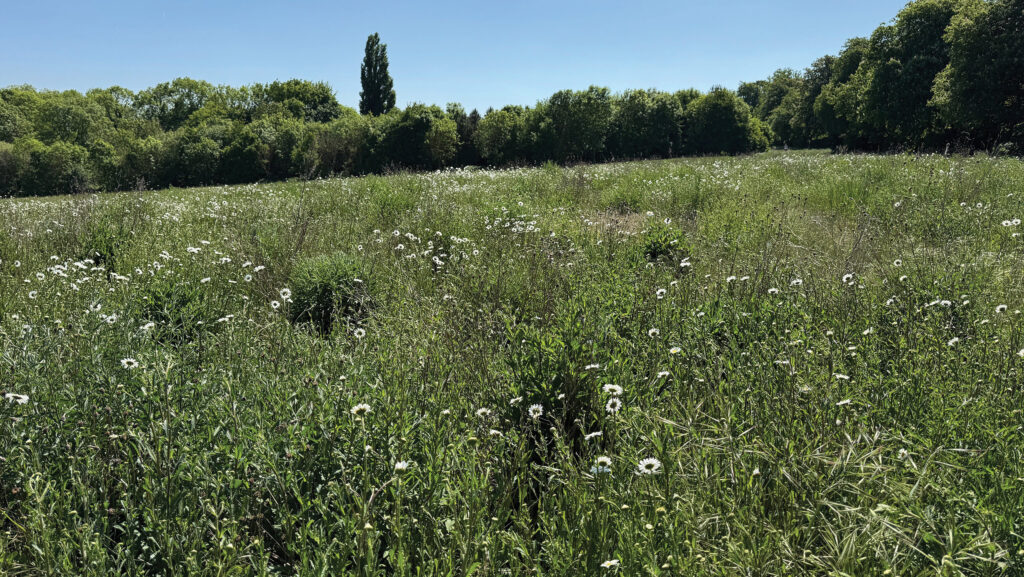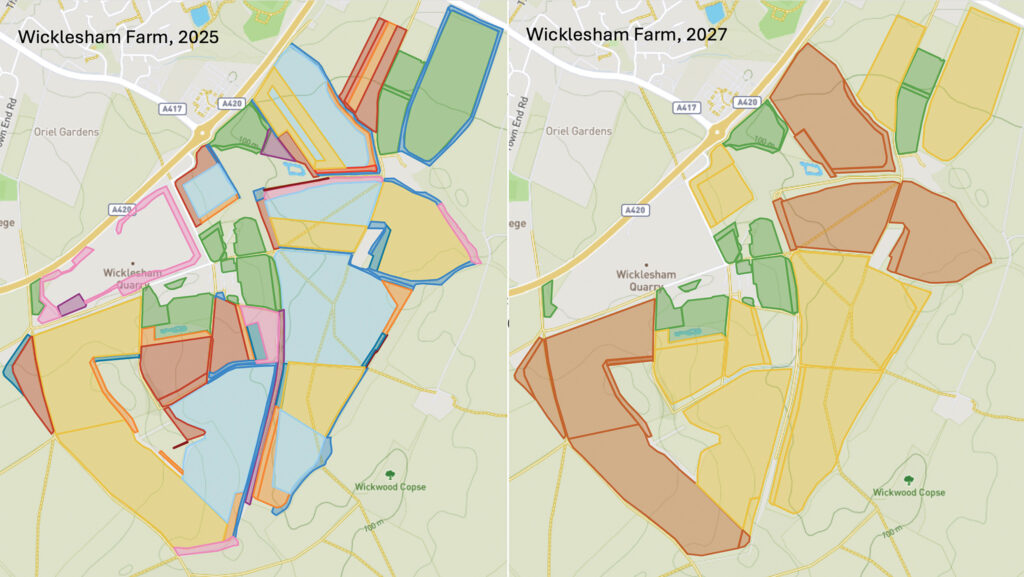Defra funding gap threatens vital farmland habitats
 Nectar pollen mix © Tom Allen-Stevens
Nectar pollen mix © Tom Allen-Stevens Vital wildflower habitats and biodiversity areas on English farms are being ploughed up as Defra’s Countryside Stewardship (CS) scheme funding comes to an end for many farmers this December – with no clear or adequate replacement scheme in place.
Farmers are currently deciding their autumn cropping plans, but many in England are having to implement these without the stewardship options they have had available over the past few years.
The NFU has warned that Defra is nearing a crisis point with its Environmental Land Management (ELM) programme, urging the department to deliver a clear and comprehensive plan to prevent the loss of vital habitats.
See also: £150m in farming grants now fully allocated
Farmers Weekly understands that the number of CS Mid Tier schemes expiring this December runs into thousands and many of these farmers cannot access the alternative Sustainable Farming Incentive (SFI), which remains temporarily closed.
Oxfordshire farmer Tom Allen-Stevens, who has had 30% of his land in five-year CS agreements for 15 years at the 170ha mainly arable Wicklesham Farm, in Faringdon, says he’ll now cut that to just 5%.
With Defra’s SFI scheme still to be reopened and rumoured to offer just £10,000 per farm – down from the £34,000 he currently receives – the maths no longer stack up.
“I’ve come to the realisation that we can’t just sit around waiting for Defra to publish its SFI plans.
“I’ve got to assume that I’m not going to be able to put these areas back into stewardship. So, they’re going into production,” he said.
That means long-established wildlife habitats – including legume fallows, wild bird cover, pollen and nectar flower strips, and arable reversion areas – will be lost.

© Tom Allen-Stevens
“When I was walking through one of my fields of legume fallow the other day, I came across a skylark’s nest,” said Mr Allen-Stevens.
“All of the biodiversity that we built up in those areas will be lost.
“If you came back in two years, I suspect it would look pretty bad. That’s just sad, really.”
Wider concerns
His concerns are echoed by farmers across England.
James Rebanks, a hill farmer and author based in Cumbria, said farmers are under so much financial pressure that they “have to make every acre count”.
“If we take away the reward from these schemes, we are simply going to have massively less nature.
“This is insanity in the middle of a biodiversity crisis.”
Gloucestershire farmer Jake Freestone posted on X that his 15-year-old “cracking pollen and nectar mix”, home to many marbled white butterflies, will also be ploughed up as support ends.
Defra is opening a new CS Higher Tier scheme for applications in September – though initially by invitation only.
Further details on the SFI are expected later this summer, with the scheme set to reopen in early 2026.
NFU demand
NFU deputy president David Exwood said: “The capacity of the new CS Higher Tier is nowhere near enough to cope with the people who may come out of the CS Mid Tier or HLS schemes in the coming years.
“Either there is no capacity or no scheme available for these farmers.
“Without a comprehensive plan from Defra on how these people can access schemes in the future, we risk losing large areas of important habitat.”
A Defra spokesperson said: “Our commitment to farming is steadfast.
“We’ve allocated a record £11.8bn to sustainable farming and food production over this parliament and we will outline updates to our reformed SFI offer later this summer.”
Nature-friendly farmers ‘face support cliff-edge’
Thousands of farmers in England could be forced to abandon wildlife-friendly practices this winter as agri-environment scheme agreements expire without clear replacements, nature groups have warned.
Alice Groom, head of sustainable land policy at the RSPB, said: “Once again, farmers delivering for nature are being left high and dry.
“At a time when we need to create more space for nature, it’s deeply concerning that farmers feel forced to scale back.”
Countryside Stewardship Mid Tier agreements signed in 2020 and some Higher Tier agreements from 2015 are due to end in December.
But even farmers in line for new Higher Tier schemes could face delays and payment gaps due to IT issues, she warned.
“This foreshadows another wave of expiries in 2028 when all HLS agreements end, and government has not outlined a plan to transition that land into new agreements,” said Ms Groom.
Martin Lines, chief executive of the Nature Friendly Farming Network UK, said:
“It will be devastating for nature and for farmers to have to make the tough decision to move areas that have been delivering for nature back into production to deliver a revenue stream because of lack of clarity from government.”
